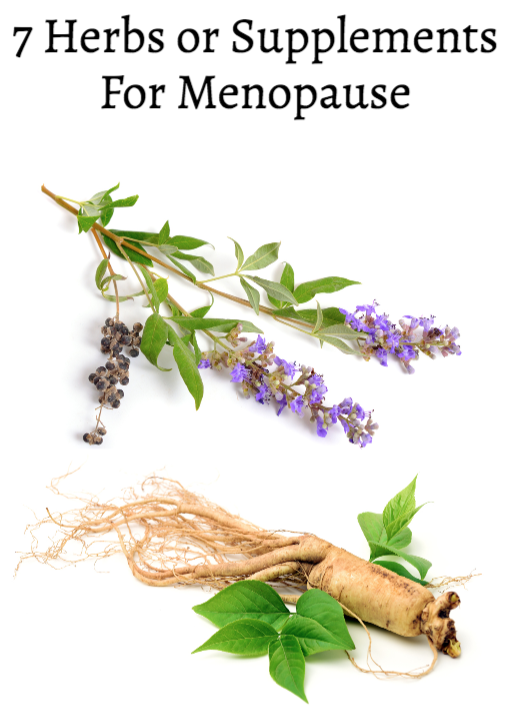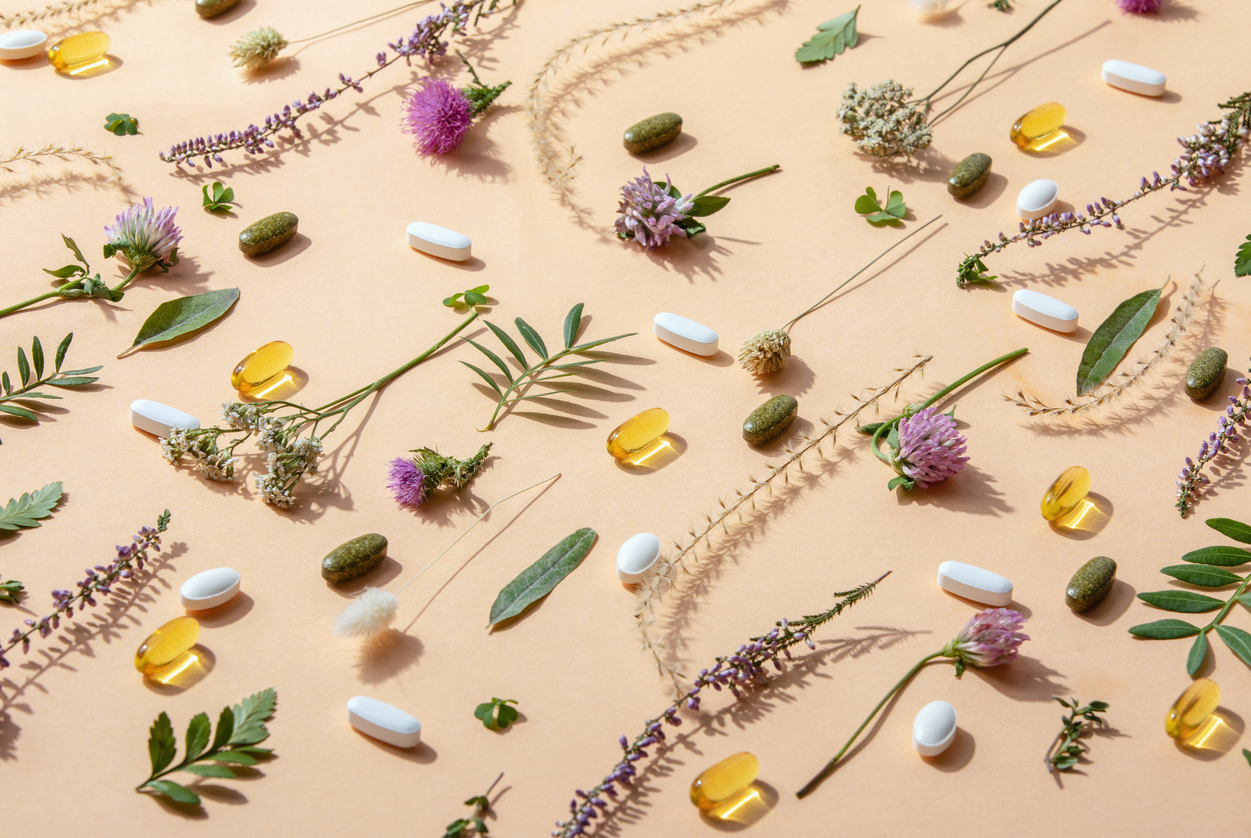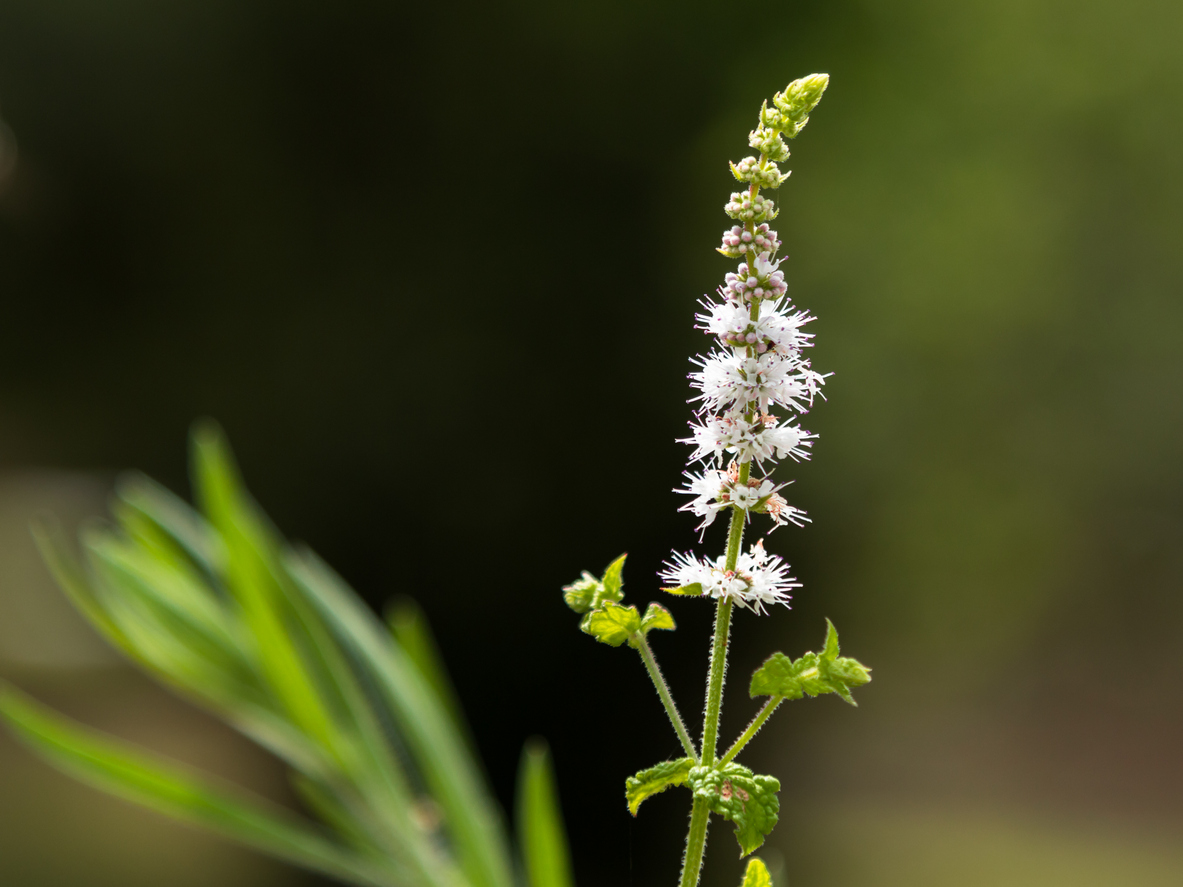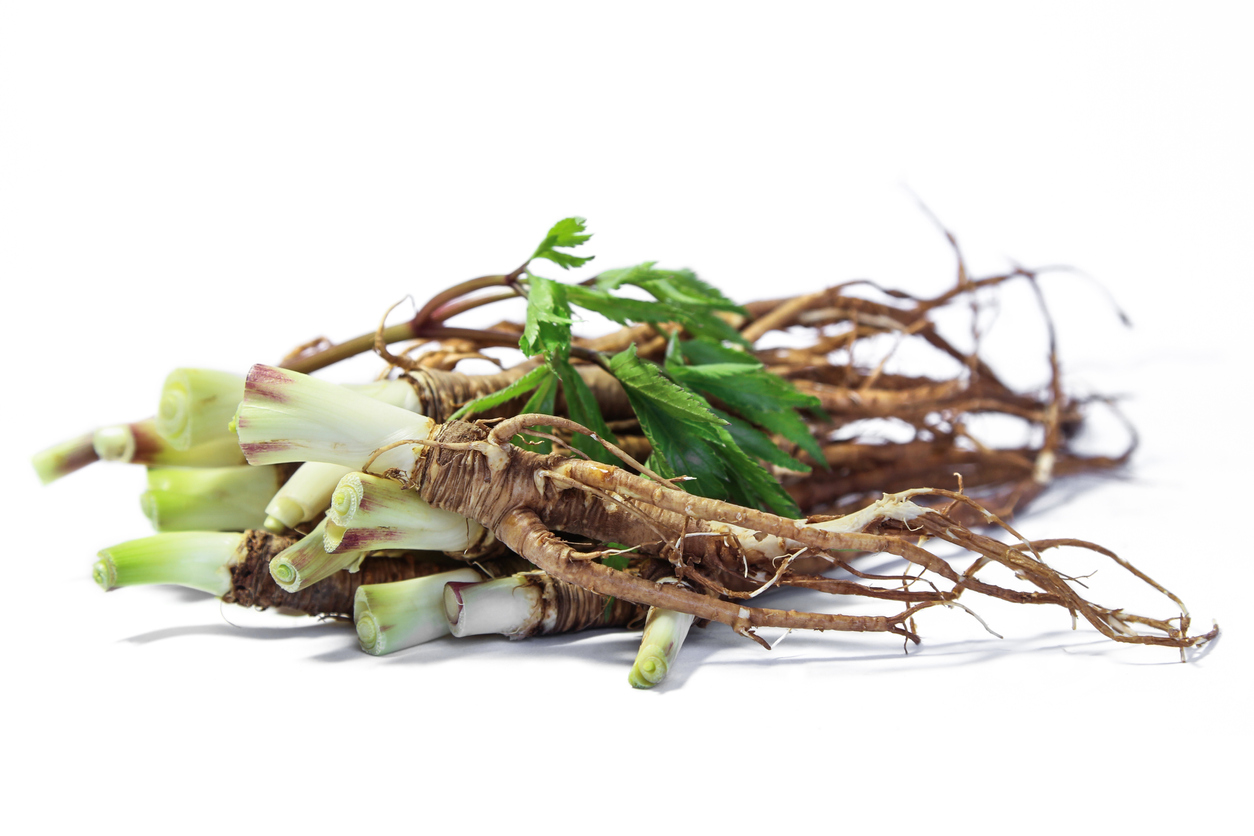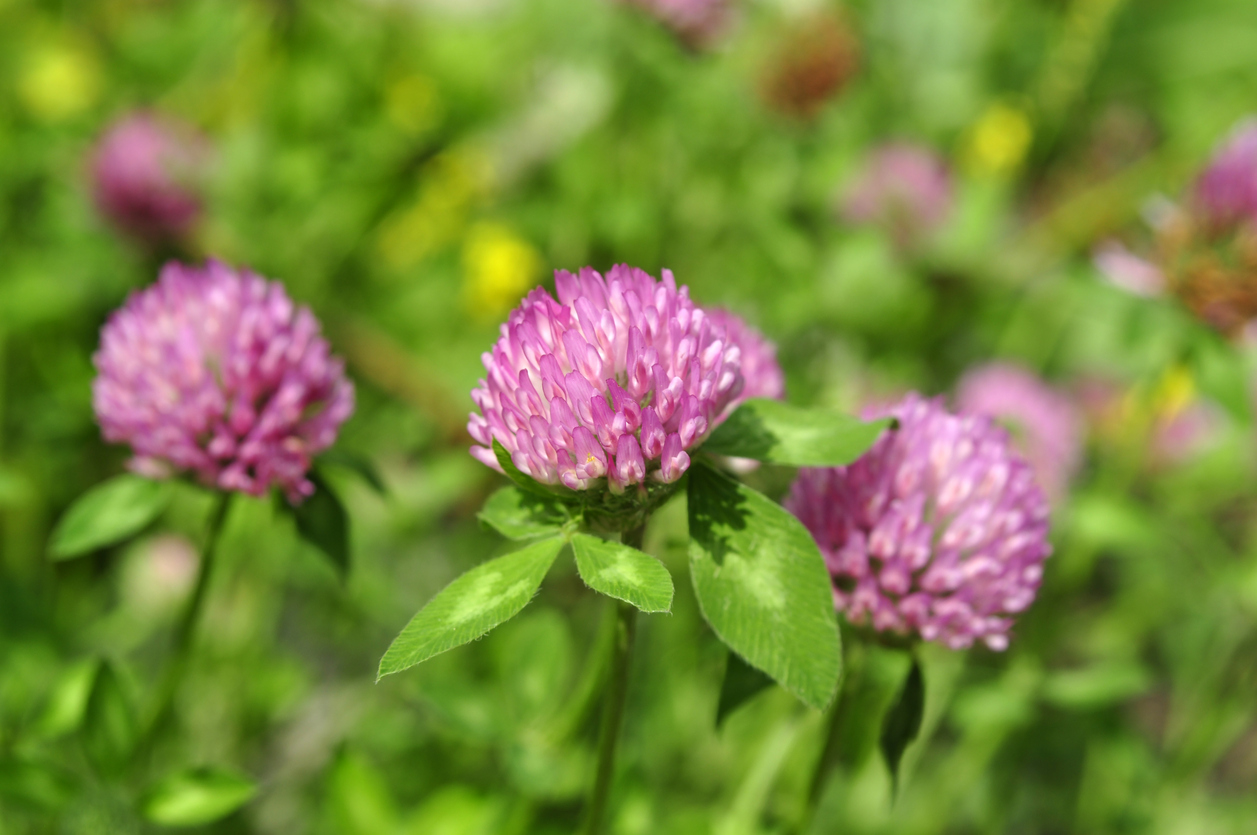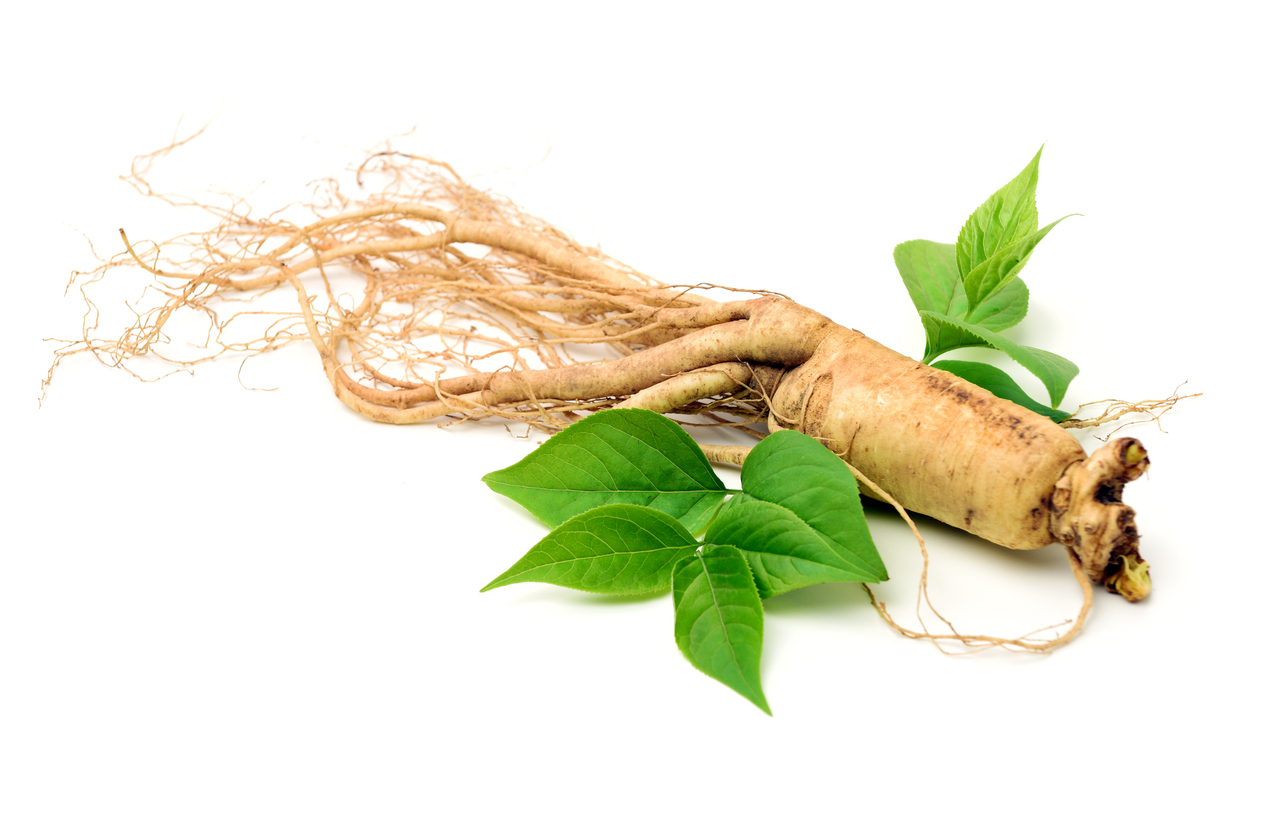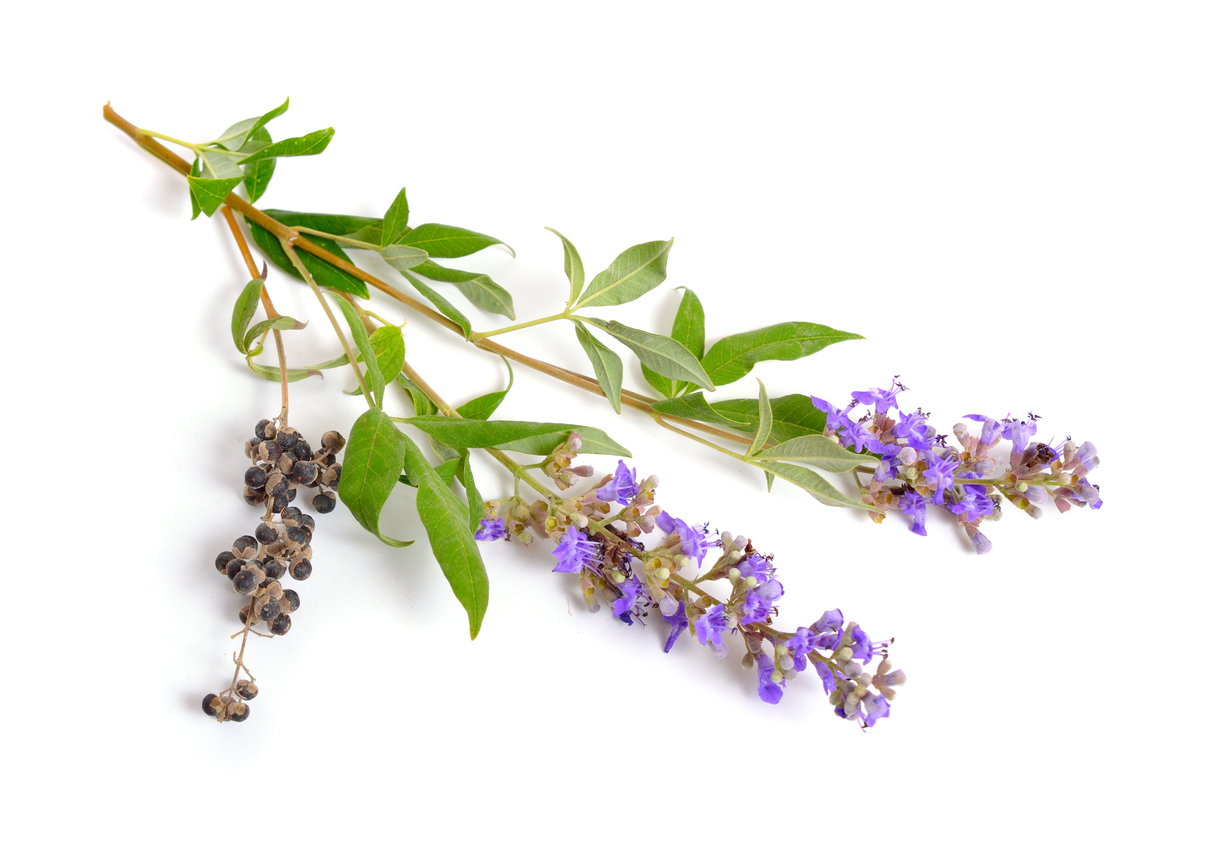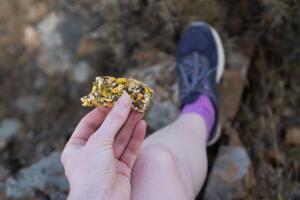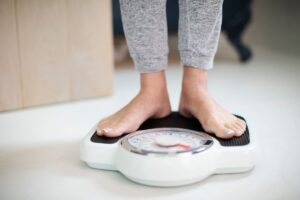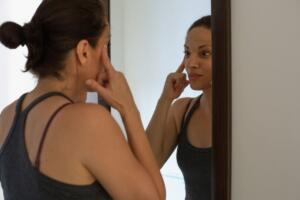I’m sure we all know that menopause is the natural conclusion of a woman’s menstrual cycles along with a decline in reproductive hormones (estrogen), usually occurring in our 40s or 50s.
If you’ve already started menopause or are through it, you know that symptoms (according to the Mayo Clinic) such as hot flashes, night sweats, vaginal dryness, poor sleep, mood swings, and bone loss are typical. Some may also experience weight gain, decreased libido, anxiety, thinning hair and skin, chills, or depression. Studies show that as many as 80% of women will have hot flashes or night sweats, and many will have other issues (60% poor sleep and 38% mood swings). See here for a more detailed explanation of menopause and associated changes.
While there are a variety of pharmaceutical drugs (especially hormone replacement therapy – HRT) to help ease the symptoms, the risk of side effects such as heart disease, breast, and uterine cancer make alternative therapies – herbal or supplements – attractive.
You will note that the efficacy of herbs and supplements for menopause has been difficult to prove definitively. Studies are generally limited, very small, and short-term. In addition, they are hard to compare with one another due to methodology differences, variation in herb extracts and production, and variation of doses. So more clinical trials are needed to be certain of impact.
7 Herbs & Supplements to Help With Menopause
Here are the seven most popular therapies to consider:
1. Black cohosh
Long used by Native Americans to treat various illnesses, black cohosh is a flowering plant from eastern North America and most associated with alleviating hot flashes and night sweats. While it was originally thought to produce estrogenic activity, newer studies indicate that it acts on serotonin receptors to relieve hot flashes and improve mood.
Along with soy, it is the most widely studied herb used for menopause issues. One study from 2018 was particularly promising though its evidence is still conflicting and not totally conclusive.
Using the extract version (versus powder) is most effective. Potential side effects are gastric complaints, nausea, or headaches. It is imperative to avoid if you have a history of liver disease.
All in all, black cohosh shows promise, and it appears to be the best at relieving hot flashes and has a positive safety profile when used for up to six months.
2. Soy
Isoflavones, also known as phytoestrogens, bind to estrogen receptors and mimic the actions of estrogen. This helps your body think your estrogen is balanced, thereby lessening hot flashes and possibly positively affecting cholesterol levels and bone loss. While a 2016 study was reasonably encouraging and some other studies show soy to be effective against hot flashes, clinical trials do not provide a clear answer on soy’s role in reducing symptoms.
Soy foods that are generally safe and provide the best nutrients include soybeans, tofu, and tempeh. The recommended dosage is 35-120 mg daily to reduce hot flashes.
Side effects can include stomach pain and diarrhea. Do not take if you have a family or personal history of breast cancer.
3. Dong quai
Chinese medicine has used dong quai for more than 1200 years as the ‘female tonic’ (menstrual issues). Clinical research is again not conclusive as to its benefits, but some studies have shown promise.
There may be some risk of cancer when dong quai is taken over a long period of time, and do not take it if you have blood clotting problems, uterine fibroids, or take blood thinners.
4. Red clover
A herbaceous plant in the legume family, red clover is another source of phytoestrogen (along with soy). A recent review of studies showed some correlation with decreasing hot flashes, maintaining bone health, and reducing cholesterol, but the evidence is not completely definitive. It does seem to have a better effect post-menopause than during menopause.
Possible side effects are headaches and nausea. Do not take if you have a family or personal history of breast cancer or take blood thinners. Red clover was originally linked to uterine cancer, but later studies question this linkage. Also, do not take red clover for more than one year due to a lack of safety data.
5. Ginseng
A Chinese medicinal herb, ginseng may improve mood and well-being by reducing hot flashes and bolstering sex drive. An August 2019 study showed improved sexual functioning, but other studies have not been conclusive. Red Korean ginseng is the most popular.
Potential side effects are many, so be sure to consult with a doctor about drug interactions. Do not use this with blood thinners or with large amounts of caffeine. And use only for a short amount of time (weeks) in order to be safe.
6. Chasteberry
A medicinal herb native to Asia and the Mediterranean, chasteberry has long been used for menstrual and menopause issues. Studies have mixed results with the most recent ones suggesting reduced anxiety and hot flashes.
Chasteberry is generally safe, but possible side effects include nausea, itchy skin, headache, and digestive distress. Do not take in conjunction with Parkinson’s disease medications.
7. Calcium (with vitamin D)
Bone loss can be a significant issue after menopause because hormone levels drop. Women over 50 need 1200 mg of calcium per day. While it’s best to get your calcium from food, supplements help ensure you get enough. Take a couple of smaller doses with food during the day (500 mg per dose) for better absorption. You should also make sure to get your calcium supplement with added vitamin D (600-800 IU daily) for improved absorption.
Beyond these herbs and supplements for menopause, diet is always the best way to get nutrients, especially food high in phytoestrogens such as soy, flaxseed, legumes, whole grains, nuts, and seeds.
Remember that supplements and herbs are not regulated by the FDA (Food and Drug Administration), so it is hard to ensure their quality. Use products with the Good Manufacturing Practices (GMP) seal, which is better than nothing given the lack of FDA oversight.
Also, it is important to consult your physician or a well-trained herbalist/naturopath before taking the suggested remedies as they might interfere with other pharmaceutical therapies, and their labels might not carry the appropriate health warnings. But taking herbal therapies or a supplement may be a great way to avoid HRT or other pharmaceutical drugs to obtain relief from the negative effects of menopause.
Read Next:
5 Herbs to Improve Skin Health
5 Anti-Aging Herbs and Spices: A Natural Way to Prevent Aging
